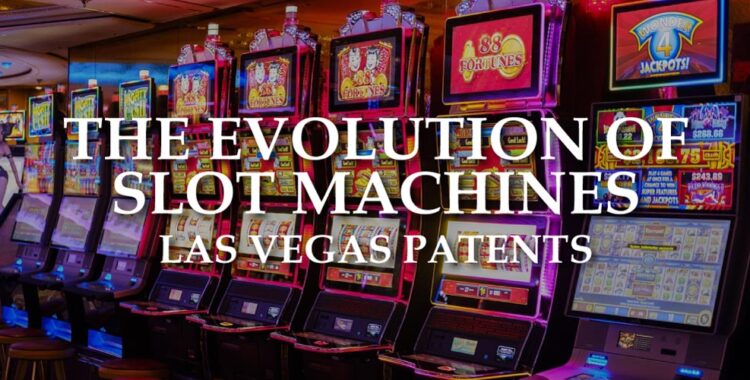Las Vegas Patents: The Evolution of Slot Machines
The history of slot machines, deeply intertwined with the fabric of Las Vegas’s gaming culture, presents a fascinating journey of innovation, technology, and intellectual property. As a law firm specializing in intellectual property and known for our flat fee patent services, this article delves into the origins of slot machines, tracing the significant patents and technological strides that have shaped their evolution and the very nature of gaming in Las Vegas.
Slot machines, from their inception, have been a symbol of chance and excitement. Their evolution reflects not just advancements in technology but also changes in consumer tastes and legal landscapes. As specialists in intellectual property law, our perspective sheds light on how patents have been instrumental in protecting these innovations, ensuring that the creators could reap the rewards of their ingenuity and foresight.
The Origin of Slot Machines
The First Slot Machine
The inception of slot machines dates back to the late 19th century. The very first slot machine, invented by Charles Fey in San Francisco in 1895, was a marvel of mechanical ingenuity. Named the “Liberty Bell,” it featured three spinning reels adorned with symbols such as diamonds, spades, hearts, and an image of the Liberty Bell itself. The mechanism was straightforward yet ingenious: a player would pull a lever to spin the reels, and if the symbols aligned, they would win a prize. This machine not only set the standard for future slot machines but also marked the beginning of a new form of entertainment.
Early Mechanical Developments
These early machines were mechanical wonders, operating on a simple yet effective mechanism of levers, gears, and springs. The appeal of these machines lay in their simplicity and the immediate reward they offered. As these machines spread across bars and saloons, they became a staple of American entertainment.
Legal and Social Impact
The early slot machines also faced legal challenges as they were associated with gambling. Different states in the United States had varied reactions, with some embracing them and others banning them. This push and pull shaped the legal landscape for gambling and the use of slot machines.
Intellectual Property Playbook
An Entrepreneur's Guide To Patents, Trademarks, and Copyrights GET THE PLAYBOOK
Significant Patents in Slot Machine Technology
Electromechanical Slot Machines
A significant leap in slot machine technology came in the 1960s with Bally’s development of “Money Honey,” the first fully electromechanical slot machine. This innovation marked a departure from purely mechanical devices to those powered by electricity. “Money Honey” was revolutionary as it automated the payout process, eliminating the need for an attendant to dispense winnings. This automation was not only a technical advancement but also a strategic move that reshaped the casino floor, allowing for more machines and, consequently, increased revenue.
The Rise of Video Slot Machines
The late 20th century witnessed another monumental innovation with the advent of video slot machines. In 1976, the Fortune Coin Co. in Las Vegas introduced the first genuine video slot machine. This machine used a modified 19-inch Sony Trinitron color receiver for the display and logic boards for all slot machine functions. This transition from mechanical reels to digital screens opened up new possibilities for game designers. Video slots could offer more detailed graphics, more reels, and more pay lines, leading to a richer player experience.
Multi-Line and Multi-Coin Machines
The introduction of multi-line and multi-coin machines in the 1980s and 1990s was transformational for the slot machine industry. These machines allowed players to bet on multiple lines and to use more than one coin per line. This not only increased the complexity and excitement of the games but also significantly raised the potential winnings, making the machines more attractive to players while being more profitable for casino operators.
Online Slot Machines
The digital revolution of the late 20th and early 21st centuries brought about the next major advancement: online slot machines. The advent of the internet and the rise of online casinos allowed players to enjoy slot machine games from the comfort of their homes. Online slots expanded the reach of slot machine gaming, bringing it to a global audience and offering a new level of convenience and accessibility.
The Role of Patents in Slot Machine Innovation
Protecting Innovations
The journey of the slot machine is marked by a long, multifaceted series of patents, each protecting crucial technological advancements. These patents served as legal recognition of the inventor’s rights and a shield against unauthorized use, replication, or sale of their technology. From Bally’s electromechanical systems to the software that drove the first video slots, patents have been a key factor in securing a competitive edge in the gaming industry.
Legal Framework and Challenges
The United States patent law provided the necessary framework for these inventions, enabling inventors to secure and enforce their rights. However, navigating this legal landscape wasn’t always straightforward. Patent disputes and challenges were common, as competitors sought to carve out their own space within the lucrative gaming market. These legal battles often pushed the boundaries of patent law, testing its limits and capabilities in protecting software and electronic innovations – areas, which in themselves, were still in their infancy as pertaining to patent law.
Encouraging Further Innovation
The protection offered by patents did more than just safeguard current inventions; it also encouraged further exploration and creativity. Knowing that their inventions would be protected, developers and engineers were motivated to continue pushing the boundaries of technology, leading to the continual evolution of slot machines.
Intellectual Property in Las Vegas, Nevada
Las Vegas as an Innovation Hub
Las Vegas, Nevada, has always been at the forefront of gaming technology, and the city’s legal protection of these inventions has been a critical factor in maintaining its status as a global gaming capital. The city’s casinos have been incubators for slot machine innovation, constantly seeking the next big thing to attract players.
Impact on the Gaming Industry
The patents on slot machine technology have had a profound impact on the gaming industry. They have not only protected the inventors but also driven competition and innovation. This dynamic has led to a constant influx of newer, more advanced machines, each offering unique gaming experiences, thus keeping the industry vibrant and ever-evolving.
The Future of Slot Machine Technology
The history and evolution of slot machines showcase the remarkable synergy between human ingenuity and the importance of protecting intellectual property. As technology continues to advance, we can anticipate seeing innovations in slot machine technology, each potentially underpinned by new and old patents alike. This ongoing legacy of innovation ensures that Las Vegas will remain at the forefront of the gaming industry, continuing its tradition of bringing new and exciting experiences to players around the world.






